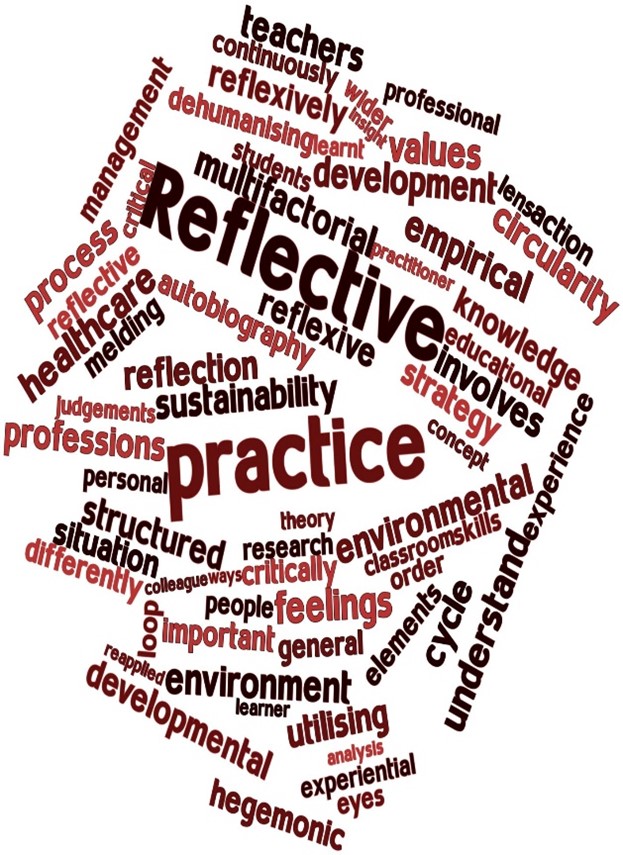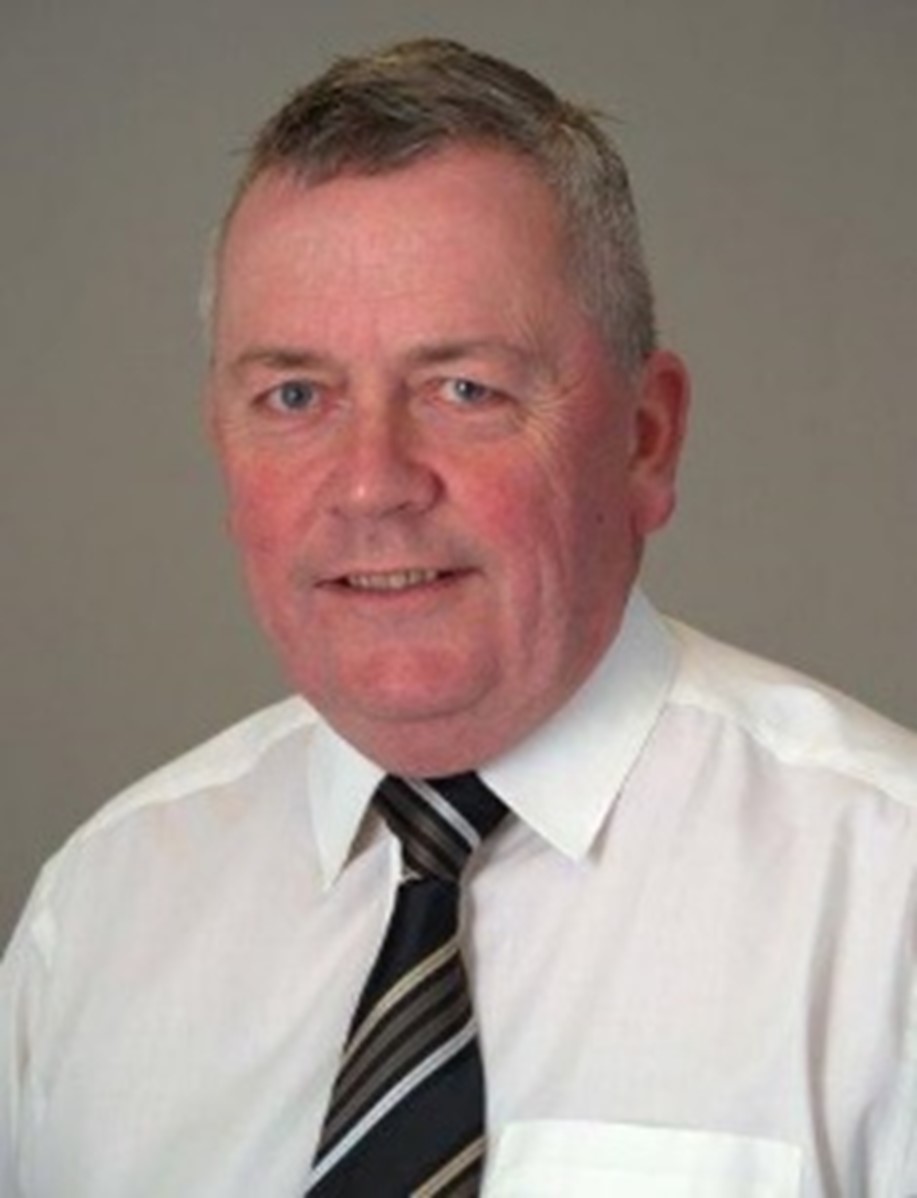Do we need a unified perspective of reflective practice for policing students?

By Stephen Moss
Reflective practice is an important tool in professional development, helping to operationalise learning across various fields, including policing. It encourages critical thinking, allowing students opportunities for continuous improvement by helping them develop self-awareness and provides a way of transferring knowledge and skills from their academic to practice environments.
For policing, it is an important element of programmes linked to the Police Education and Qualifications Framework (PEQF) designed by the professional body, the College of Policing (CoP). The framework shows the learning required by officers for different roles. Given that there are 43 Home Office police services in England and Wales there are bound to be different interpretations of what is meant or required and that is before we consider the involvement of numerous Higher Education Institutions (HEIs). It does raise the question of whether we need a unified perspective of reflective practice for policing programmes, particularly if it is used in conjunction with assessment?
The question will be explored in this blog by dropping in on a conversation between two staff members with contrasting views as they explore the benefits and challenges of having a unified perspective for reflective practice in policing education.

The Police Constable Degree Apprenticeship (PCDA) is a new apprenticeship programme delivered collaboratively by the OU and North Yorkshire Police (NYP) to new police recruits. It is an initial course on the PEQF and is at Level 6. Within the programme reflective writing is used to support students as they develop their professional practice while at the same time being a tool of assessment. A university sponsored scholarship project aimed to explore current practice and identify any barriers to developing effective reflective practice in the Work Based Learning Modules of the Police Constable Degree Apprenticeship (PCDA). We wanted to understand the impact of using written reflective accounts as a method of assessment on the PCDA work-based learning modules. The project found that there are different understandings of what reflective practice is and that there is a desire to use different tools to record reflections.
Colleague A: Reflective practice huh? For me it is crucial in any profession and to get the most from it everybody involved should have the same conceptual understanding of what it is, and how and why it is useful.
Colleague B: Reflective practice in a professional context is about individuals examining their own actions, thoughts and experiences to develop self-awareness, improve decision making and develop and improve their professional practice. Sometimes they will do this on their own but sometimes in a group setting such as a de-briefing. The reflective practice process, however, is very individual, right?
Colleague A: Yes, but for policing at this stage a unified perspective is needed to ensure consistency and standardisation in the learning process, particularly as we are using it for assessment purposes.
Colleague B: Well, consistency is important but I think reflective practice should be a flexible and adaptable tool that fits with the needs and style of the individual. Policing is dynamic with novel, unpredictable situations and the relationships in our learning process are complex – student officer, training staff, operational staff and supervision and last but not least university lecturers. Too rigid an approach might hinder creativity and narrow potentially diverse perspectives.
Colleague A: OK – I’m not saying that flexibility isn’t important but having a unified perspective surely helps by having a common framework for everybody to work to? Including students. It provides a baseline to consider policy and practice, otherwise we will have chaos. I agree that policing is innately action orientated and the concept of reflection is not seen as particularly real world (beyond the world of PEQF). Indeed, student officers may quickly encounter unhelpful normative pressures in their practice environments and the danger is that they will only apply the techniques of reflection superficially and miss much of the benefit. It doesn’t help that there is a ‘reflective practice’ outcome within the formal disciplinary processes (Police (Conduct) Regulations 2020, Part 6). Accordingly, the concept of ‘reflective practice’ is often greeted with a great deal of suspicion and is why I believe we need to be clear when we are talking to students.
Colleague B: Well ehm …….I hear what you say, but I still don’t think so, and the problem with tying it down to a unified perspective is that there is the potential to stifle growth and innovation which is what the police service is looking to address; to get out of the straightjacket of organisational culture and repeating past mistakes. Policing students come from diverse backgrounds and their unique experiences shape how they think and act. Different interpretations of reflective practice will enrich the whole process and help develop the skills of individuals as they develop their operational practice.
Colleague A: OK, but there are distinctly different approaches – Schon (1983) talks about ‘reflection in action’ and ‘reflection on action’, while Gibbs (1988) is definitely in the latter camp.
Colleague B: I don’t see a problem here, they both have their place. By following Gibbs’ model students have the opportunity to delve deeper into their experiences, analyse different factors and bring in their unique experience. And remember, they will likely have different tutors and mentors and so a richness comes out of the interplay, while individuals need to be able to influence and shape their experiences and learning.
‘Reflection in action’ is more dynamic with officers ‘reflecting’ in the moment. Importantly, they are drawing on previous experiences and their knowledge to consider risk and support decision making. I think this is where some people mix in the National Decision Model (NDM) (College of Policing, 2014) which is as it says a decision-making model, not a model for reflection but it does have elements of reflection within it.
And we haven’t spoken of other theory such as Kolb (1984) or models like Borton (1970) that are widely used in policing.
Colleague A: Agreed, but I still feel everybody needs to be using the same language and have the same understanding of what we are trying to achieve so that the students are fully prepared, effective officers when they are sent out to work on their own; so that they understand the potential impact of their actions on individuals and communities. It’s also important that they embed reflection in their operational practices, beyond the classroom. Yes, they will all have different backgrounds and experiences but they also need to understand the requirements and expectations that comes with their role, and evidence this in assessment and beyond. In some practice environments reflection is embedded and students need to recognise this, e.g. de-briefing.
Colleague B: I think it might be degrees that we are talking about – policing is a really complex activity and, yes, student officers need to show competence but they also need to develop skills such as empathy. It is a deeply personal process and everybody has their own way of analysing and improving their work. And in policing they need to be culturally sensitive and, be able to consider alternative viewpoints while challenging their own biases and assumptions. They need to be able to identify their blind spots so that they can adapt their practice to meet the needs of any given scenario.
Colleague A: Yes, degrees perhaps that allow for personalised learning and development. A good point about individuality as people have different learning styles and might like different approaches to doing reflection other than essays, like video or audio recordings – the end point we are looking for is a competent officer. But having a robust model (whichever they choose) to work with would be helpful and support more effective, deeper, reflection.
Colleague B: And it should be a positive and supportive experience where individual students are building on their strengths and their understanding of the communities they serve; a holistic approach to police learning – academic and reflection on practice.
Colleague A: So, a unified perspective can provide structure and guidance but room should be made for students to explore their own unique paths of growth. As well as everybody else in the process, it sounds like a community of practice is needed to support group and individual reflection!
Conclusion
What we are wrestling with is the balance between consistency and individuality in the context of policing organisational and operational cultures. A unified perspective provides a common foundation against which competency can be measured but the many relationships involved require flexibility and adaptability and this must be encouraged. The point of encouraging reflective practice is to equip officers with life/career long skills and not just the ability to jump through assessment hoops. Policing students need to be free to reflect on their own experiences so that they can challenge their own biases and assumptions to develop their operational practice to meet the needs of the public they serve. But to do so effectively the provision of established models and approaches that can be sustained beyond the classroom supports more effective reflective practice. This can lead to a more effective police service with thoughtful, critically self-aware professionals who can navigate the complexities of their role both in theory and in practice.
References:
- Borton, T. (1970) Reach, touch and teach. New York: McGraw-Hill.
- College of Policing (2014) The National Decision Model. Available at: https://www.college.police.uk/app/national-decision-model/national-decision-model (Accessed: 2 October 2023).
- Gibbs, G. (1988) Learning by doing – a guide to teaching and learning methods. London: FEU.
- Kolb, D. A. (1984) Experiential learning: experience as a source of learning and development. Upper Saddle River NJ: Prentice Hall.
- The Police (Conduct) Regulations 2020. Available at: https://www.legislation.gov.uk/uksi/2020/4/made (Accessed: 2 October 2023).
- Schon, D. (1983) The Reflective Practitioner: How professionals think in action. San Francisco CA: Jossey-Bass.

Professional Biography
Stephen has been contributing to the field of policing education for approaching thirty years, firstly as a national police trainer and quality manager within the police service and subsequently within higher education. Within The Open University portfolio of policing programmes he is the qualification lead for the Degree Holder Entry Programme (DHEP) and a module leader on the PCDA, both of which are linked to the Police Education and Qualifications Framework (PEQF).
Stephen has a strong interest in work-based learning and in particular, how knowledge and understanding from different learning sources are brought together to develop professional practice.

